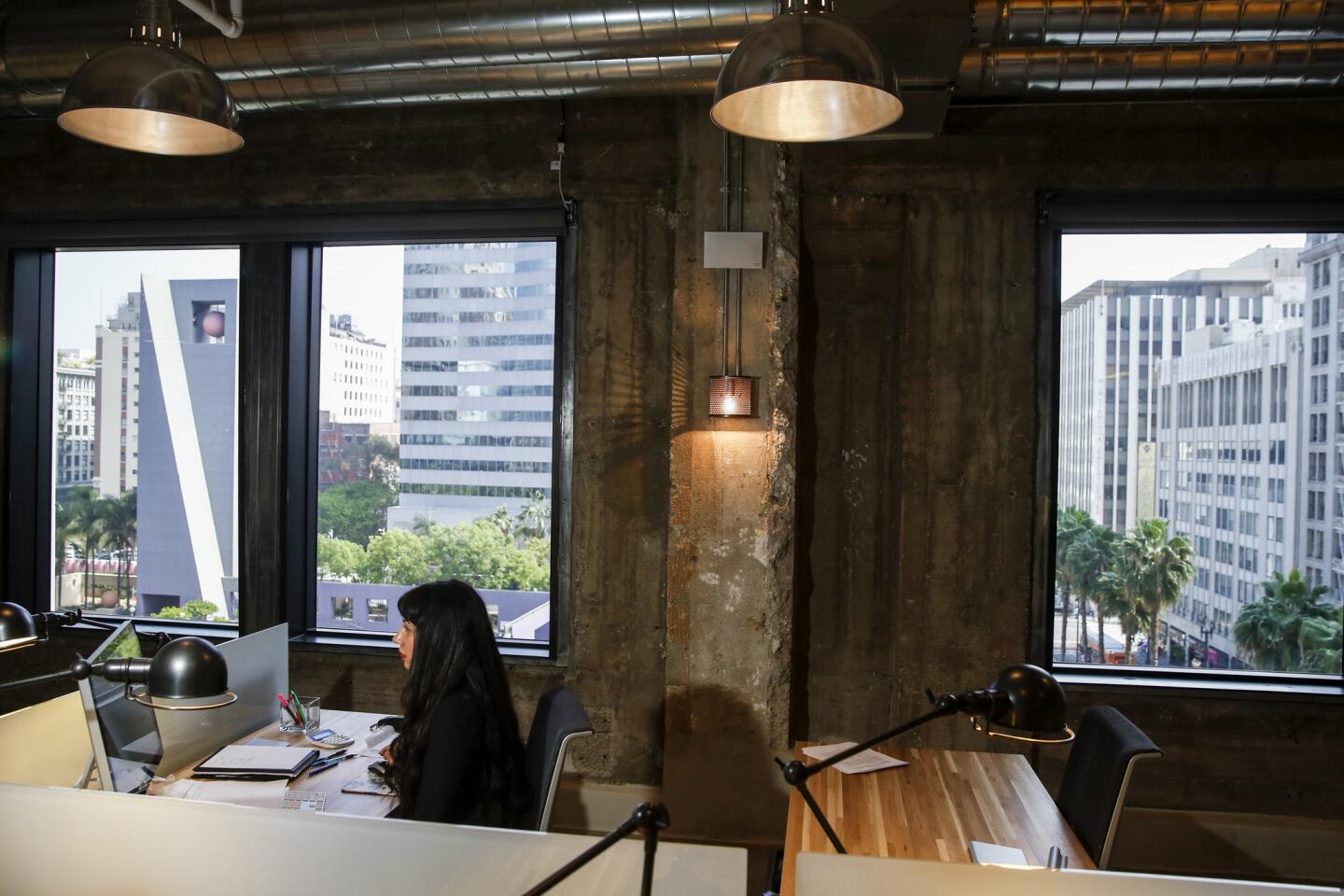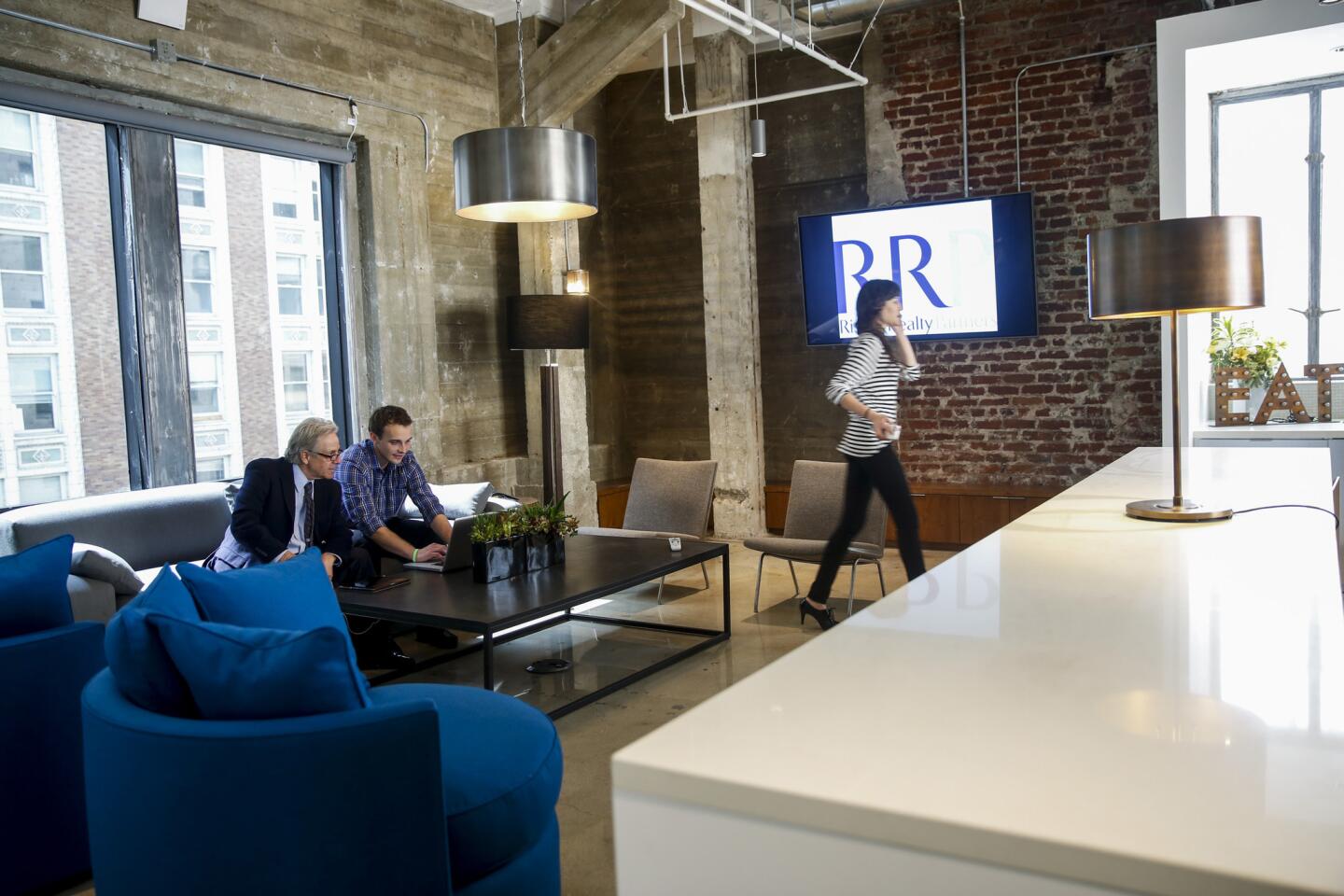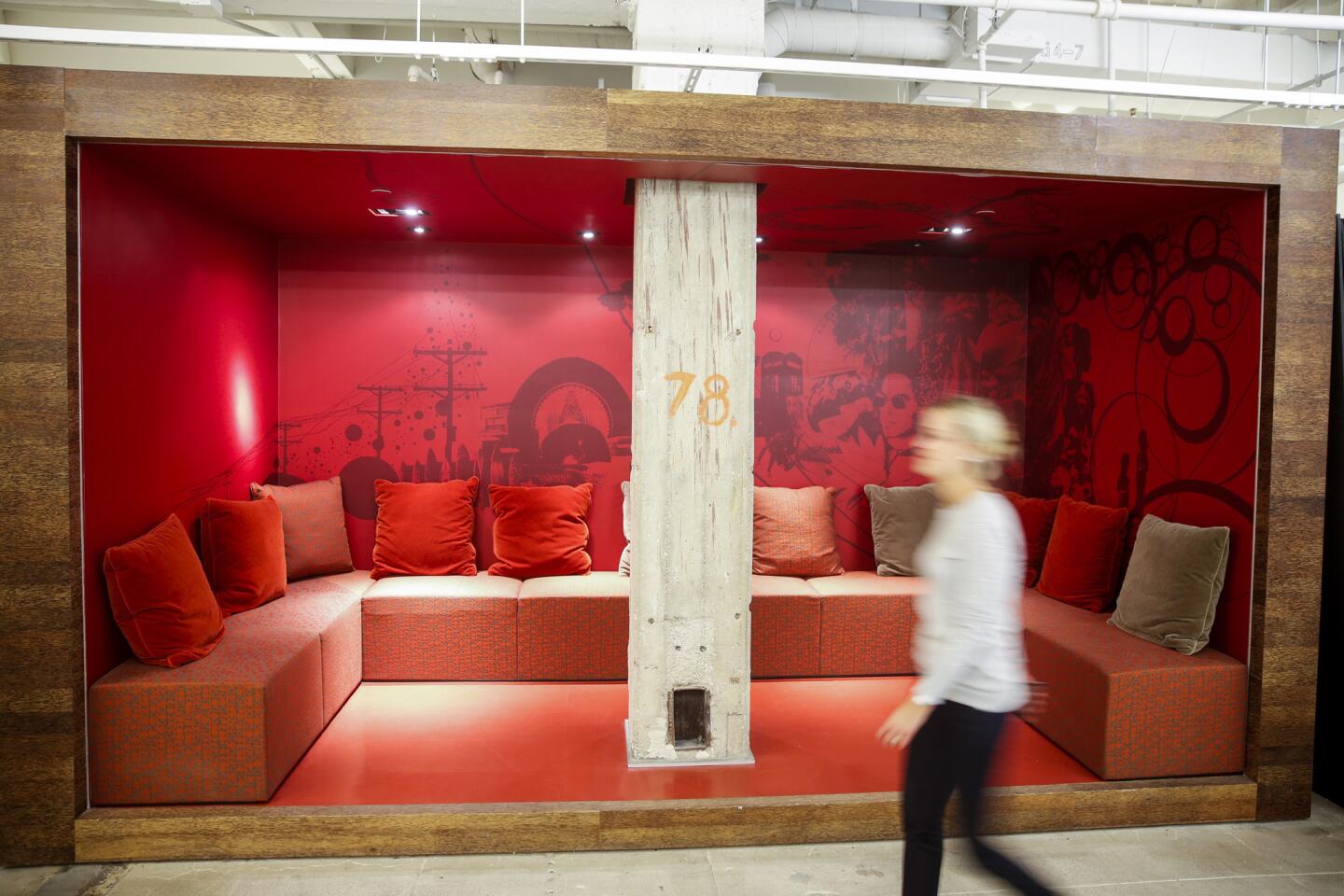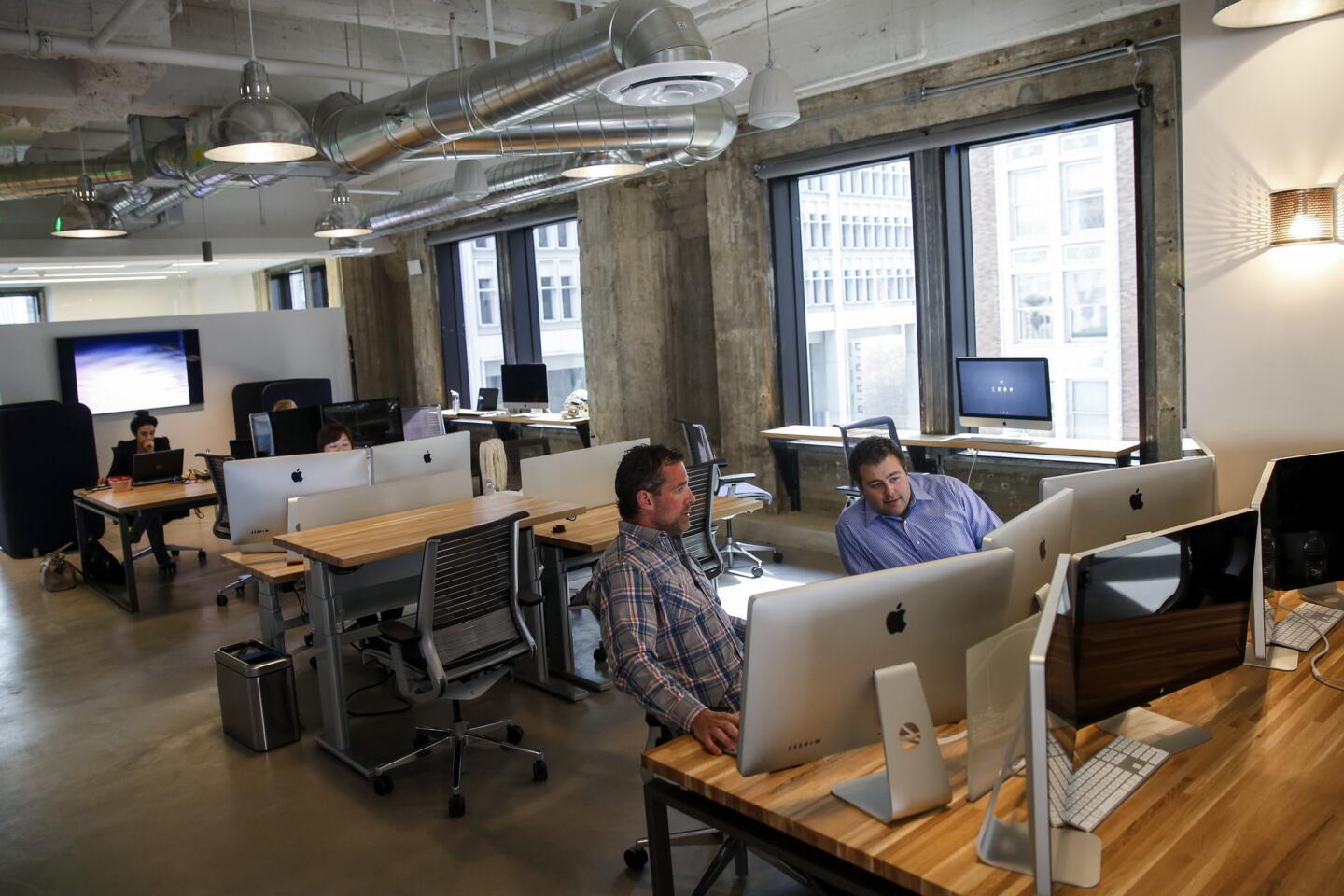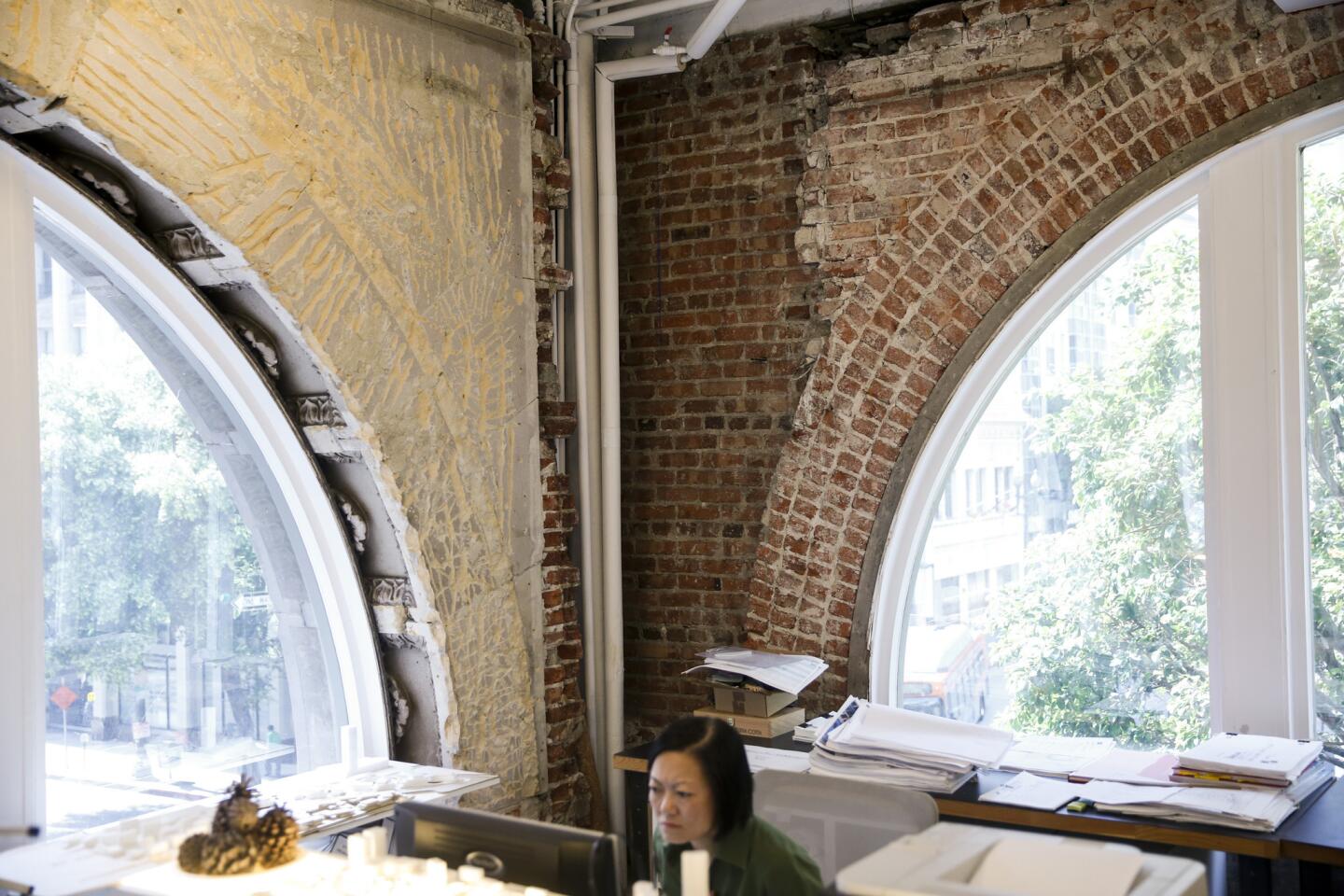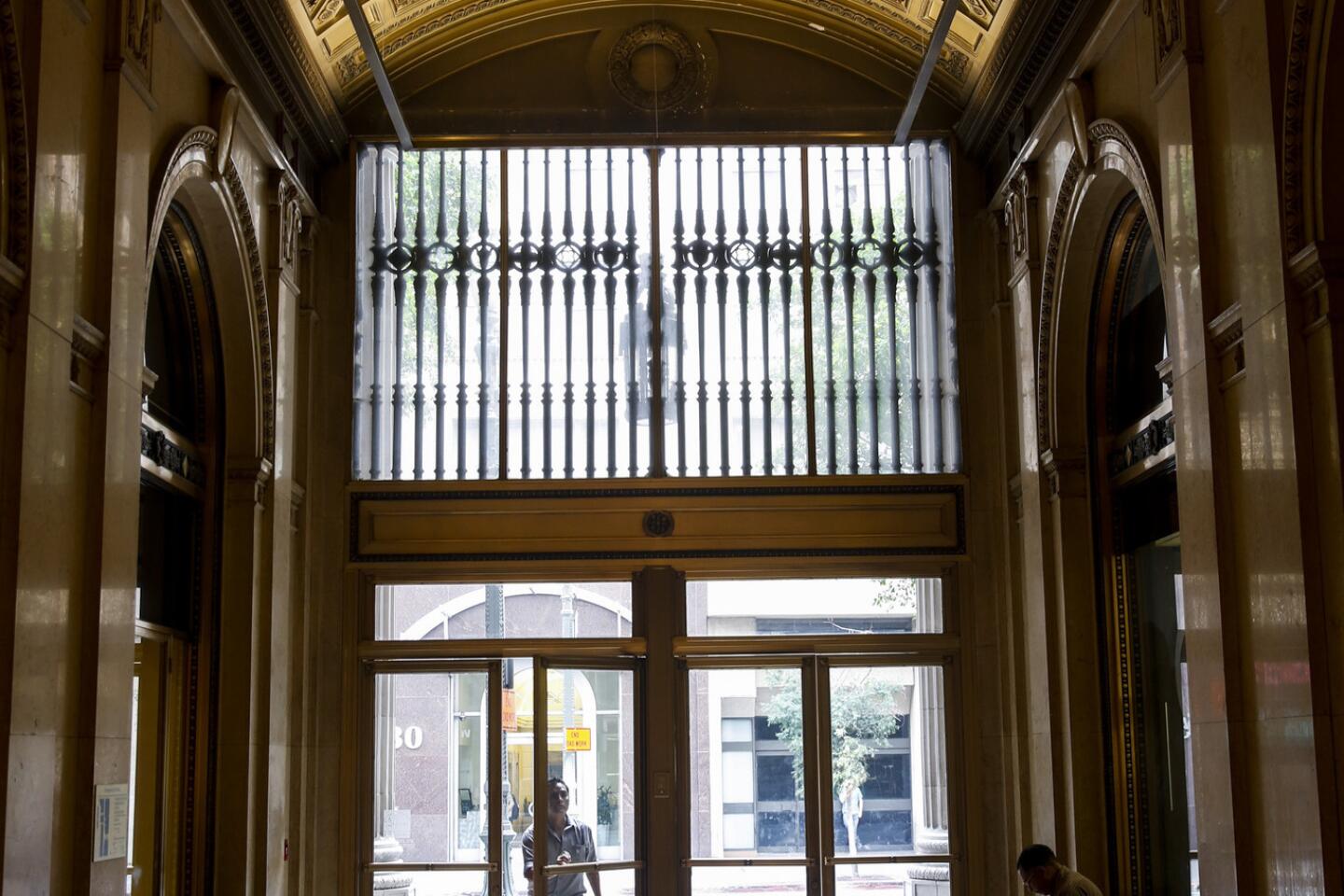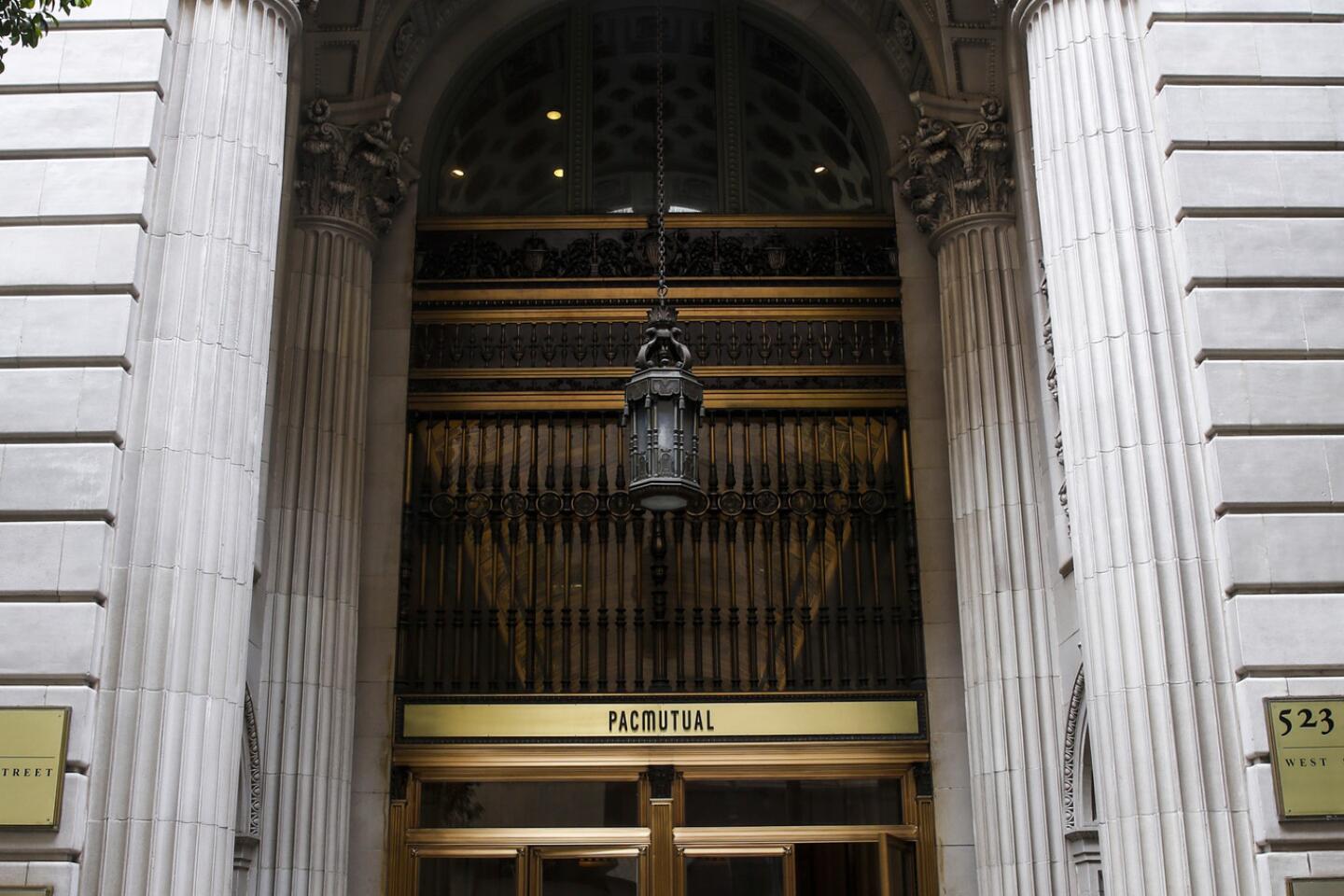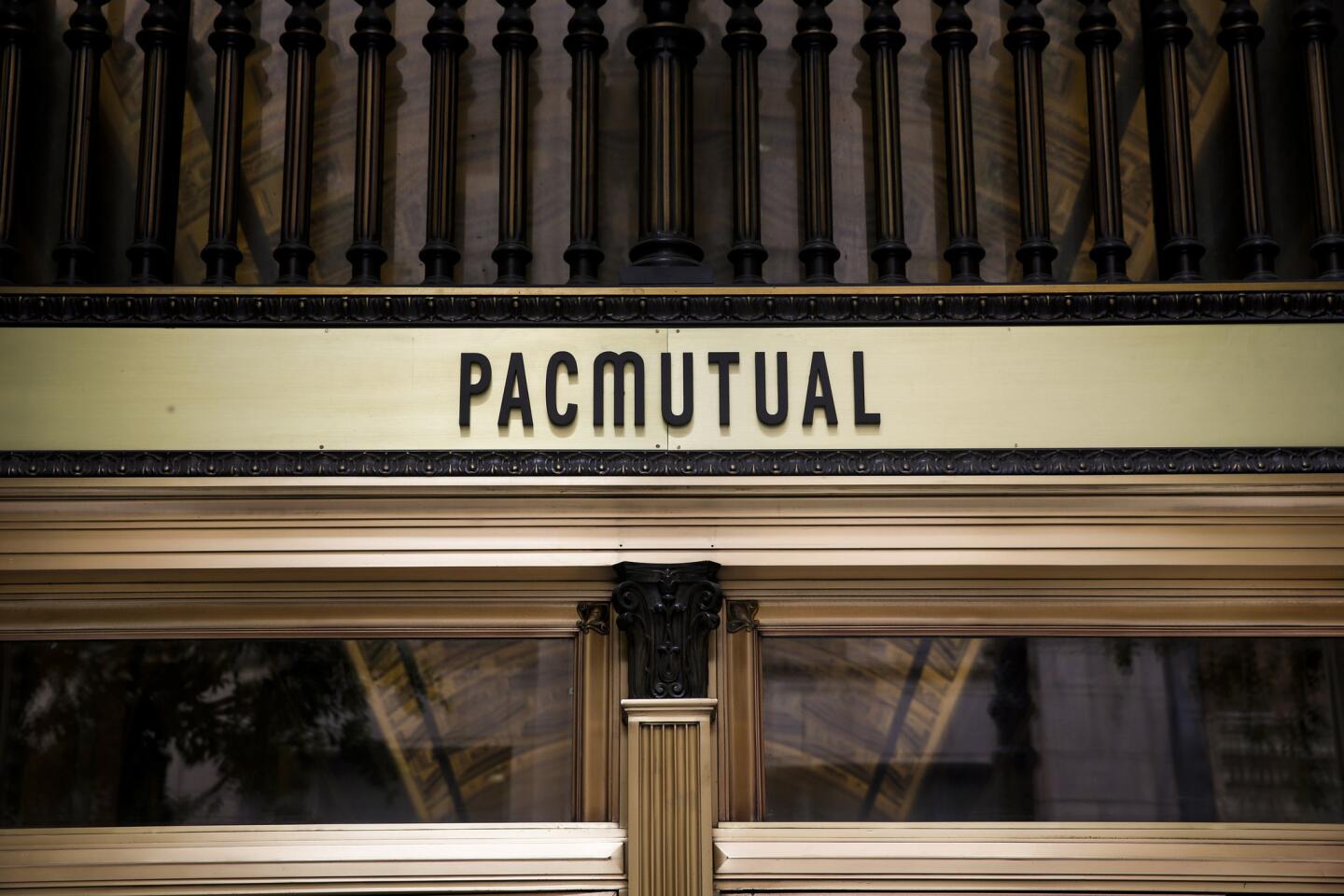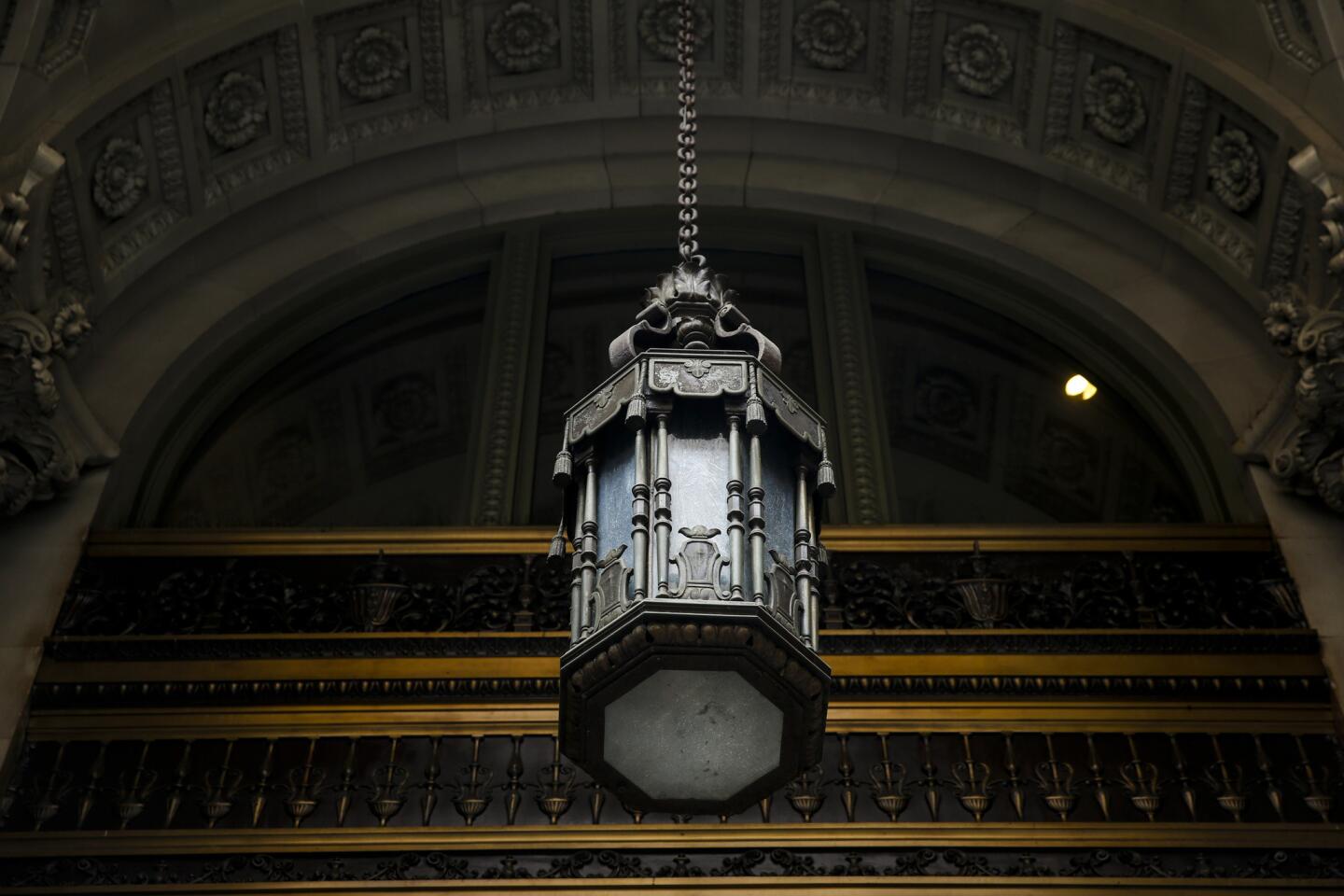Once-tired PacMutual Plaza is prime office space again
- Share via
In a sign that the definition of prime office space is undergoing a dramatic shift, an old downtown Los Angeles office complex — once considered second rate — is now outperforming many of its newer, glitzier competitors.
PacMutual Plaza, which dates to 1908, was one of the best addresses in Southern California until an unprecedented office building boom in the late 1980s and early 1990s brought a stately new crop of skyscrapers to town.
For decades to follow, PacMutual — in the same block as the Biltmore hotel in Pershing Square — was a lower-cost alternative to such elite enclaves of corporate America as U.S. Bank Tower, Two California Plaza and the Gas Company Tower.
As a young real estate professional in the late 1990s, Christopher Rising was informed that “PacMutual was for people who wanted to think they were in Class A space when they really weren’t,” he said.
The definition of what is first-class office space in downtown Los Angeles is in flux, however, as a growing number of tenants shun conventionally formal, discreet offices in favor of wide-open rooms. Exposed brick and polished concrete are preferred by many over carpet, drywall and dropped ceilings.
With that trend in mind, Rising went after historic PacMutual. His Rising Realty Partners bought the complex at 6th and Olive streets for $60 million in 2012 and set out to make its advanced age an asset instead of a liability.
Rising Realty ripped out false ceilings and scraped plaster off the brick walls. It lifted carpet to find marble floors laid by the original owner, Pacific Mutual Life Insurance Co. On some floors it tore down walls to make small offices into big ones, increasing the overall rentable square footage from 425,000 to 460,000.
“You can have higher density of employees in a big floor plan,” said Nelson Rising, Christopher’s business partner and father.
Occupancy in the building fell to nearly 50% as the Risings’ renovation got underway and the landlords let go of tenants who had secured low-cost leases under previous owners. As they worked on refilling the building, the Risings hoped to appeal to both professional firms and companies in creative fields such as tech and entertainment.
Their strategy was to offer tenants the choice of conventional office space or hipper alternatives where concrete ceilings still bear the impressions of the boards that craftsmen used while casting them a century ago.
It turned out that the raw look associated with dot-com cool appealed to all kinds of companies, suggesting that the cloistered elegance associated with corporate offices of the late 20th century is growing passe.
Professionals such as attorneys want the new look too, said real estate broker Carle Pierose of Industry Partners, who lines up new tenants for the building.
“Just because I went to law school, it doesn’t mean my office space has to suck,” Pierose said of tenants’ attitude. “I want it to reflect my lifestyle.”
Rising Realty has signed 56 leases in the last year and a half, Pierose said. Among the new tenants are professional firms, online retailers, fashion companies and video game makers.
The biggest new tenant is Nasty Gal, an online fashion retailer that took 60,000 square feet.
Entertainment companies have historically avoided the downtown financial district, but Oscar-winning visual effects firm Magnopus left Santa Monica and agreed to a five-year lease for space at PacMutual with views of its gray beaux-arts-style exterior.
So far, the suits and the creative types who bring their dogs to work have managed to coexist, Christopher Rising said. The complex is more than 90% leased at rents that match or surpass typical downtown rates.
As part of its $25 million worth of improvements to PacMutual, Rising Realty has opened a courtyard off 6th Street that was closed off in the 1930s. Two restaurants will face the courtyard including Tender Greens and bakery Le Pain Quotidian, which will open next week.
French restaurant Tartine will open its first U.S. outpost on the Olive Street side of the complex under an 80-foot-tall wall of live greenery this summer.
Part of PacMutual’s lure is its history. The three-building complex on 6th Street between Olive and Grand Avenue is among the oldest functioning office structures in the city.
Pacific Mutual Life Insurance Co. completed its first building at 6th and Olive streets in 1908. For decades the structure sported a big clock on the roof and a sign saying, “Time to insure.”
The insurance company expanded its headquarters during a post-World War I building boom in Los Angeles. In 1921 an addition with two 12-story towers was attached on the west side of the original building. The builders said they required the largest single order for terra cotta ever placed on the Pacific coast to finish the exterior.
The lobbies and hallways were swathed in marble from Italy and Alabama — more marble than in any other building of its kind in the country, according to the builder. Tiffany Studios, the famous New York design firm, supervised decoration of the public spaces, including a recreation room for 1,000 people. A three-story cafeteria and underground garage were added in the 1920s.
Tenants have included comedians Laurel & Hardy, Sen. Samuel Hayakawa and the law office of future President Richard Nixon.
Pacific Mutual stayed in Los Angeles until 1972, when it became one of the first major white-collar companies to set up headquarters in Orange County.
Rising Realty Partners owns and manages 12 properties including a tech complex in Old Pasadena. Next up for renovation is the former Lockheed headquarters in Calabasas that was later occupied by lenders Countrywide and Bank of America.
Christopher Rising says he now avoids describing the offices his company makes as “creative” and instead refers to them as “lifestyle” space because workers spend so many hours on the job that they want to be someplace comfortable.
“People,” he said, “don’t want to live in an office silo anymore.”
Twitter: @rogervincent
More to Read
Sign up for Essential California
The most important California stories and recommendations in your inbox every morning.
You may occasionally receive promotional content from the Los Angeles Times.
